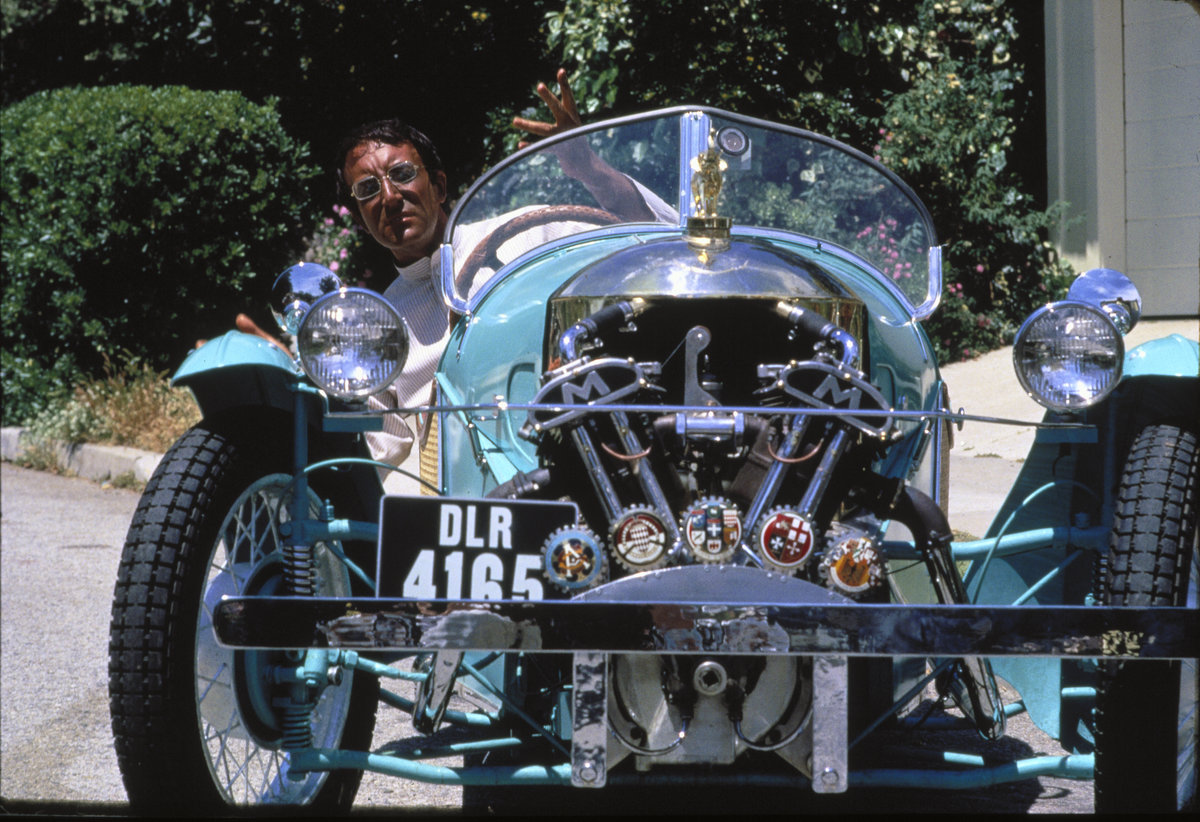There are two elephants in Blake Edwards’ 1968 comedy The Party. One appears literally at the film’s climax, emblazoned with graffiti. More significant, and troubling, is the metaphorical elephant in the room: that we’re invited to laugh at a white comedian in brownface.
Namely Peter Sellers, impersonating an Indian actor who unwittingly wrecks an upmarket Hollywood shindig. His Hrundi V Bakshi is almost a retread of the character he played opposite Sophia Loren in 1960’s The Millionairess. Still, according to a talking head interviewed in one of the bonus features, the film “was very popular in India”. Hmmm. Best just to accept that things were different then, and be glad that such antediluvian attitudes are mostly a thing of the past.
Edwards’ and Sellers’ key influence was surely Jacques Tati
This is a comedy of social embarrassment, about the agonies of not fitting in. A pre-credits sequence shows Bakshi unwittingly sabotaging a historical epic, wearing a modern wristwatch and later blowing up most of the set. Told that he’ll never work again, Bakshi’s name is accidentally added to the guest list of a party held by the studio head. That’s about it plotwise, the scenario allowing for a sequence of elaborate semi-improvised scenes.
Despite the inevitable reservations about Sellers’ accent and appearance, much of what follows is very, very funny: a series of immaculately choreographed mishaps involving footwear, birds, food, wigs and toilet paper. Edwards, reconciled with Sellers after falling out during the making of A Shot in the Dark, used a video camera to immediately review each take, allowing the set pieces to be polished to perfection. And there are some brilliant moments, from an attempt to retrieve a lost shoe to an iconic exchange with a parrot. Birdie num num, anybody? Edwards’ and Sellers’ key influence was surely Jacques Tati (though none of those interviewed in the bonus features admit this): Bakshi arrives at the party in a very Hulot-esque three-wheeler (pictured above), and the elaborate modernist set recalls Mon Oncle and Playtime. There are long stretches where Sellers’ character is on the periphery, and the sound mix often favours background noise over dialogue.
Edwards’ and Sellers’ key influence was surely Jacques Tati (though none of those interviewed in the bonus features admit this): Bakshi arrives at the party in a very Hulot-esque three-wheeler (pictured above), and the elaborate modernist set recalls Mon Oncle and Playtime. There are long stretches where Sellers’ character is on the periphery, and the sound mix often favours background noise over dialogue.
An elderly Edwards recalls that he’d originally wanted to make a film totally free of dialogue. It’s significant that The Party begins to unravel in its more conventional later stages, when Sellers begins to speak more and the semblance of a plot emerges. His Bakshi remains the most likeable character and duly gets the girl, blithely driving away from the party’s wreckage. Watch, and enjoy with a hefty dose of salt. Incidental pleasures include a cheesy Henry Mancini score (the title song featuring some excruciating Don Black lyrics), and the gloriously funky typeface used in the opening credits. The afore-mentioned bonus interviews suggest that all concerned had a groovy time making the film, and the restored image is vibrant.
Overleaf: watch the trailer for The Party

 Edwards’ and Sellers’ key influence was surely Jacques Tati (though none of those interviewed in the bonus features admit this): Bakshi arrives at the party in a very Hulot-esque three-wheeler (pictured above), and the elaborate modernist set recalls Mon Oncle and Playtime. There are long stretches where Sellers’ character is on the periphery, and the sound mix often favours background noise over dialogue.
Edwards’ and Sellers’ key influence was surely Jacques Tati (though none of those interviewed in the bonus features admit this): Bakshi arrives at the party in a very Hulot-esque three-wheeler (pictured above), and the elaborate modernist set recalls Mon Oncle and Playtime. There are long stretches where Sellers’ character is on the periphery, and the sound mix often favours background noise over dialogue.